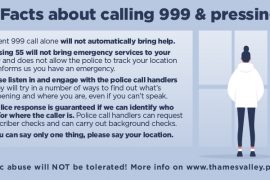What few people will tell you about advocacy is that it’s rarely a short-term process. We work very hard to act as advocates, and a big part of advocacy is keeping hope alive.
Advocacy is often misunderstood, and this might be because we don’t have an agreed definition that is in the public sphere. The most common definition that people have heard is that of a legal advocate and using a search engine might not be your best bet in discovering more about advocacy; in 0.38 seconds a google search will return 49,600,000 results, and it’s first two definitions are pretty vague:

Image description: screenshot of google search for “advocacy definition”, the search suggestion drop down tab from the search bar lists “advocacy definition, advocacy definition law, advocacy definition mental health, advocacy definition nursing”. The first result shows a dictionary entry for advocacy with a phonetic spelling. Advocacy is listed as a noun and two definitions are offered: 1. Public support for or recommendation of a cause or policy. Synonyms include: support for, argument for, arguing for, calling for, pushing for, pressing for. 2. The profession or work of a legal advocate. “solicitors should have a record of advocacy in the lower courts”.
Googles search suggestions offer definitions that are not included in this dictionary entry, which is good but it highlights a problem with our collective understanding of advocacy: we don’t understand what it is or what it’s remits are. So, here’s a brief introduction:
Advocacy & Mental Health
In terms of mental health advocacy, anyone can be a mental health advocate. Their role is to help the individual express their wishes and concerns
In some instances, in mental health, patients are legally entitled to an advocate. There are three types of statutory advocates in England and Wales. These are:
- Independent Mental Health Advocates (IMHAs): specially trained advocates who can support certain patients under the Mental Health Act 1983. The law regarding IMHAs is different in England and Wales.
- Independent Mental Capacity Advocates (IMCA): specially trained advocates who can support certain people under the Mental Capacity Act 2005.
- Care and Support Advocates: support certain people under the Care Act 2014. You can find more information about advocacy under the Care Act on the Social Care Institute for Excellence (SCIE) website.
Advocacy & Nursing
- An advocate is one who pleads the cause of another; and a patient advocate is an advocate for clients’ rights. In that role, the nurse protects the client’s human and legal rights and aids in asserting those rights if the need arises. Advocacy may include, for example, providing additional information for a patient who is trying to decide whether or not to accept a treatment (Potter & Perry). Or, the nurse may defend a patient’s rights in a general way by speaking out against policies or action that might endanger their well-being or conflict with their rights.
Advocacy & Education
An advocate can also help with access to education cases or Special Educational Needs (SEN) cases in which the local authority or school is not assisting the pupil or student. In these cases, parents, can be advocates and/or you can seek external help.
Advocacy in general
Advocacy in all its forms seeks to ensure that people, particularly those who are most vulnerable in society, can:
- Have their voice heard on issues that are important to them.
- Defend and safeguard their rights.
- Have their views and wishes genuinely considered when decisions are being made about their lives.
- Advocacy is a process of supporting and enabling people to:
- Express their views and concerns.
- Access information and services.
- Defend and promote their rights and responsibilities.
- Explore choices and options
Advocacy has a place in everyday life; from general communication to helping someone access information to defending and promoting the rights and responsibilities of another being. In fact, one of the best places to see advocacy in action is on a primary school playground.
The reason that we need advocacy is because the system is broken; sometimes what feels like rock bottom, is a new foundation that we need to build upon.




